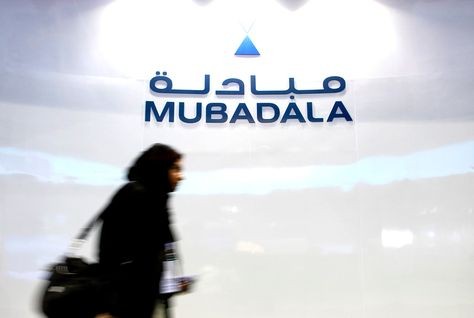Convertible debt in the UAE
Post on: 10 Апрель, 2015 No Comment

September 2009
Introduction
Recently SHUAA Capital (SHUAA) and Dubai Banking Group (DBG) reportedly settled a dispute over the terms of a Dhs 1.5 billion ( US$ 408 million) convertible bond issued by SHUAA. Dubai newspapers reported that DBG, a subsidiary of Dubai Holding, agreed to accept further SHUAA shares with a total value of Dhs 757 million rather than the principal bond amount of Dhs 1.5 billion. Under the settlement, SHUAA reportedly issued shares at Dhs 2.91 per share, despite the original terms of the convertible bond stating that the bonds were to convert at a price of Dhs 6 per share. Both parties have accepted a compromise position which is several hundred million Dirhams from their claimed entitlement.
Not surprisingly, convertible debt issued by Dubai companies is now a hot topic — but it has been an important capital market instrument in the GCC for several years.
The legislative scheme in the United Arab Emirates (UAE) (and many other GCC jurisdictions) makes it difficult to create convertible debt structures which are as simple in design and operation as those prevalent in other jurisdictions. Different approaches are required to achieve similar commercial outcomes and certainty.
We regularly advise on convertible instruments issued by GCC entities and can design solutions to the local law challenges.
The problem with mandatory convertible debt and a potential solution
As general matter, mandatory convertible debt of the type issued by SHUAA to DBG (i.e. debt convertible at the option of the issuer) is not effective under UAE law. It runs against Article 186 of the UAE Commercial Companies Law, which allows a holder of the convertible bonds to elect whether to be repaid the principal amount of the bond or, alternatively, accept the conversion and receive the agreed number of shares. This statutory provision negates any contractual agreement to the contrary between the bond issuer and the bond holder — and makes a bond which is expressed to convert only at the issuer’s option ineffective.
A potential solution to this problem is in effect to reverse the conversion right. Instead of issuing debt which must convert to equity if certain conditions are met, equity is issued at the outset, but with the holder having the right to require the issuing company to repurchase or redeem the equity if the conversion conditions are not met. If that right is exercised, a debt obligation will be created — if not, the holder continues to hold equity.
This structure does not run into the Article 186 difficulties described above but does have its own challenges.
The problem with conventional convertible debt and a potential solution
Article 186 does not negate the effectiveness of conventional convertible debt (which is convertible only at the option of the holder). However, conventional convertible debt does create issues under the provisions of the UAE Companies Law and existing practice, including the following:

- an extraordinary general meeting of shareholders is required to approve the issuance of the convertible bonds (the Authorising Resolution). This raises practical issues, such as whether or not the requisite percentage of shareholders will approve the Authorising Resolution;
- the Authorising Resolution is valid only for five years. Therefore, parties accepting convertible bonds should ensure that the term of such bonds does not extend beyond five years — in order to avoid the requirement for further shareholder authorisation at conversion;
- the statutory pre-emptive rights of existing shareholders must be waived (the effectiveness of which is an issue) by each shareholder which is a shareholder at the time of conversion — or the shares issuable on conversion must be first issued to such existing holders — which would be unpalatable for any holder of convertible debt; and
- it is not certain that the requirements to amend the Memorandum of Association (MoA) (to increase the issued share capital of the issuer on conversion) can be “pre-approved” upon issuance of the convertible debt — because the requisite approvals of a Notary Public and the Government may require shareholders to re-approve the necessary amendments to the MoA at conversion.
Where the conversion of debt to equity cannot be effected other than with subsequent shareholder or third party approvals, the value to the holder of the instrument is impaired by lack of certainty (as there is a risk that the issuer or its shareholders will dispute the conversion at exactly the moment when it makes sense for the creditor to convert). The structures used in the GCC to create convertible debt are principally aimed at automating, on issuance, the conversion process from the holder’s perspective (or in other words eliminating, to the extent possible, any opportunity for the issuer or its shareholders to obstruct conversion).
One potential solution to create certainty for the holder of convertible debt is to have the shares issued to a trustee for the creditor at the time the finance is provided. The creditor instead pays the subscription price for the shares on behalf of the trustee, creating a debt owed by the trustee to the creditor. The issuing company guarantees that debt. If the creditor subsequently wishes to convert to equity, it acquires either the trustee or beneficial title to the shares under the relevant trust instrument at equivalent value, thereby discharging the debt. If the creditor chooses not to convert but instead requires its debt repaid, it calls on the issuing company under the guarantee and the issuing company repays the debt on behalf of the trustee. Under the terms of the agreement between the issuing company and the trustee relating to provision of the guarantee, this gives the company the right to cancel or redeem the shares. In most GCC jurisdictions we would use a Wakala arrangement to effect these outcomes.
This solution does come with its own challenges.
Conclusions
Mandatory convertible notes are not effective under Article 186 of the UAE Commercial Companies Law when issued by joint stock companies. It is not sufficient to adopt conventional Western instruments for commercial transactions governed or affected by UAE law (or other GCC law) and expect similar commercial results to be achieved with any certainty. The potential costs of not adapting to the local environment can be significant.
Different approaches are required, which often alter the legal form (but not the economics) of the transaction. The types of solutions suggested in this paper do just that but, as with all capital market instruments issued by UAE companies, particular care must be taken to ensure that the instrument is effective under UAE law.














